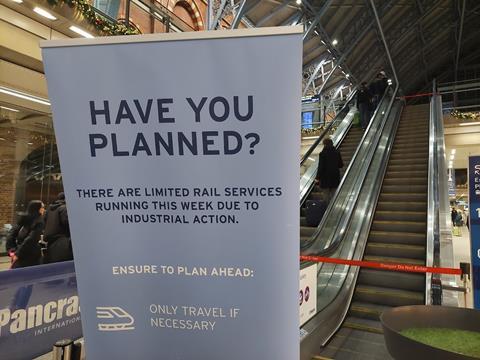
UK: The rail sector has responded to the government’s introduction to Parliament on January 10 of the Strikes (Minimum Service Levels) Bill, which would require the provision of minimum levels of public services in various sectors during industrial disputes.
A bill covering the transport sector had its first reading in October, with the Department for Transport mentioning similar rules in place in countries such as France and Spain. The government now aims to expand the scope of the proposed legislation to cover the health, fire and rescue, education, nuclear decommissioning and border security sectors.
The Rail Partners association of train operator owning groups said requiring minimum transport service levels was ‘not a new concept and is well established in countries across Europe. It is an approach which seeks to appropriately balance and protect the right to strike and the rights of others to get to work or school and access necessary healthcare.
‘Now government has published the bill, the next step is to develop the clear guidelines under which industry and unions will need to operate.’
RMT trade union General Secretary Mick Lynch described the bill as ‘an attack on human rights and civil liberties which we will oppose in the courts, parliament and the workplace’.
He said ‘the government’s own impact assessment of minimum service levels shows it wouldn’t work. They would be better off coming to a negotiated settlement with unions through dialogue’.
TSSA Interim General Secretary Frank Ward said ‘our union totally opposes this move to bring in what amounts to further draconian anti-strike laws which are a clear attack on the rights of working people in our country. Anti-strike minimum service legislation would do nothing to resolve the current disputes, something acknowledged both by unions and the Department for Transport.’
Len Shackleton of free-market think tank the Institute of Economic Affairs said the legislation could prove unworkable on the railways, with at least three unions being involved and responsibilities and disputes overlapping. ‘The government would likely get bogged down in legal challenges and would certainly face great difficulties in reaching acceptable levels of provision during strikes’, he said.



